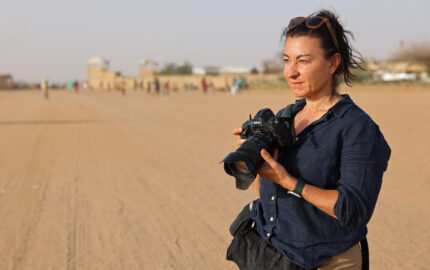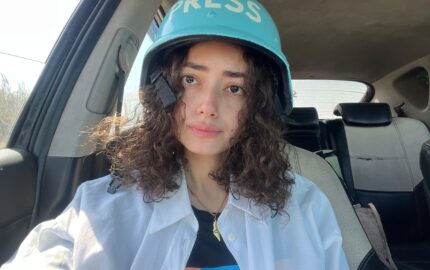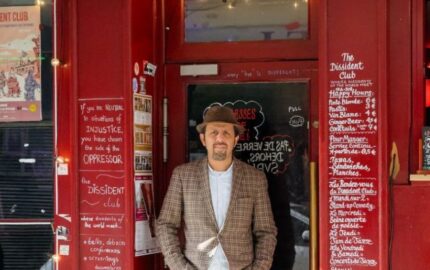What would you do if the target of your investigation threatened you with a lawsuit? What if it came from a direction you weren’t expecting: A government official you’ve been reporting on in Azerbaijan happens to have financial holdings in a London company, and all of a sudden you’re getting sued in multiple jurisdictions at once?
The Organized Crime and Corruption Reporting Project is all too familiar with these legal challenges. The 16-year-old nonprofit investigative news organization is knee-deep in lawsuits — with a cumulative price tag of $1 million over the group’s lifetime — and prioritizes getting the news out knowing there may be repercussions. But not all nonprofits are equipped to take on such a risk.
Amidst rising rates of strategic lawsuits against public participation (SLAPPs), especially internationally, OCCRP has launched Reporters Shield, a new initiative to create a media defense fund that will make legal support more accessible before, during, and after publication of stories that aim to hold power to account. Announced Dec. 6 at the International Anti-Corruption Conference, Reporters Shield is set to launch in the summer of 2023 as a standalone organization and aims for a starting budget of $20 million. The initiative was co-developed with the Cyrus R. Vance Center for International Justice of the New York City Bar Association with an initial contribution of $9 million from USAID.
Drew Sullivan, co-founder and publisher of OCCRP, says a crucial defense against SLAPP cases is not letting them destroy you financially. If media outlets have the funds to win lawsuits without going bankrupt or avoid them entirely by seeking counsel right out the gate, they can be bolder in what they do. Sullivan spoke with Nieman Reports about what the landscape looks like now and how he hopes Reporter’s Shield will change it. The conversation has been edited for length and clarity.
What problem is Reporters Shield trying to solve?
Sullivan: The problem that we face as nonprofit investigative reporting organizations is that many organizations around the world are not insured and cannot be insured. Freelance journalists might be able to get some kind of packages, but if you're an organization you might find that you’re uninsurable.
And so consequently, it puts editors in very difficult situations. Every time they have a story that's potentially litigious, they're kind of in an existential circumstance. And often editors deal with this by self-censoring, by either not doing stories on litigious characters or immediately taking down stories at the first sign that there's a legal problem.
I can say from the numbers of the 50 organizations that make up OCCRP, we've got 41 lawsuits. That's never been that high. One of our partners has more lawsuits than they have employees. I think what's happened is journalists have done a good job raising the stink when people beat or murder a journalist. And I think people don't want the trouble of killing a journalist. The next best thing is to look legitimate and go into court and try to harass them there and to try to basically put them out of business.
What is the mission of Reporters Shield?
Sullivan: The mission is to protect, by making sure that journalists have lawyers prior to publication so stories can be reviewed, during public publication so when they're threatened they have some legal resources to help guide them through a response, and then after if they need a lawyer to go into court and protect them. We're hoping that by making sure that these organizations have good lawyers representing them that will deter plaintiffs.
We [at OCCRP] rarely lose cases. But that's why these are SLAPPs. They're not designed to win. They're designed to harass.
Who can be protected by Reporters Shield and how is it different from other types of insurance for journalists?
Sullivan: This is really aimed at the many [investigative reporting] organizations in the nonprofit world. These are the organizations with limited funding. And if you have a significant amount of [funding] going to legal, then you're really not able to do the kind of investigative reporting that you want to do.
Most libel and slander insurance is [only] available in the U.S. and the U.K. and Western countries. There's no insurance industry outside of those jurisdictions that offer these kinds of packages. Consequently, you have to be insured in the West, and they're less familiar with the risks associated with other countries.
[Reporters Shield] is not an insurance company. It's more of a media defense fund which will pay for lawyers when you are sued. So, it does not pay for, at this point, judgments against you. It's designed to cover things like organizations that get sued multiple times. Commercial media insurance tends to drop you when you've been sued a couple of times, because they say, ‘Oh, you're a high-risk person now.’
In the absence of insurance, what would happen to a journalist or a media outlet if sued?
Sullivan: What typically happens is organizations capitulate well before they get to the point where they're gonna have to have a multimillion-dollar fight against them. I don't think that there's wholesale going out of business. I think there's more likely wholesale capitulation. If you look around the organized crime reporting area, there are few people doing it. And there are many people who had a lot of stories about them that have disappeared off the web over the last decade.
How do you think Reporters Shield will be received by the industry?
Sullivan: In the places that I've talked about this with large groups of people, the response has been very favorable. People say we really need this. So, for a large number of organizations, especially small ones, this is a godsend. I think it goes against the way traditional support has happened [where] organizations support you after you've been sued. But unfortunately, this is kind of late because you didn't have the opportunity to have your story reviewed by a lawyer, and so you didn't have their advice on how to deal with it.
How will it be funded?
Sullivan: This started under an idea that we pitched around the world and was adopted by USAID. So, that's the bulk of the funds [and] we have some additional donors. We're trying to get somewhere around the $15-$20 million level of funding, which we think will allow the organization to support this long enough for us to get a significant base of membership and to get a better sense of what the costs are. [Organizations] would pay some amount of a membership fee to the organization to be part of it, generally based on the size and the amount of stories that they publish.
When you look five or 10 years down the line, what will this insurance make possible that isn’t possible today?
Sullivan: You will find that organized crime figures, autocrats, corrupt government officials who have used the court system to bully journalists will suddenly no longer be off limits [for investigation]. People will do stories they didn't do before. And we will take away the courts as a means for these people to bully journalists and to avoid accountability for their actions.
We're really trying to create an organization that will take this threat off the table permanently. It has to be done as an industry solution and not organization by organization. We have to fight back against bad people, and bad people use the courts more effectively than anybody. This is our only hope of doing this on a global scale.



